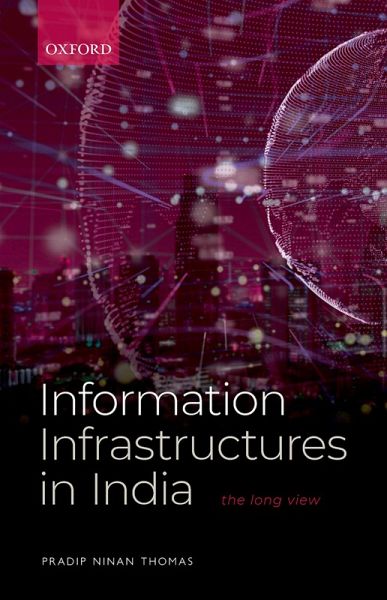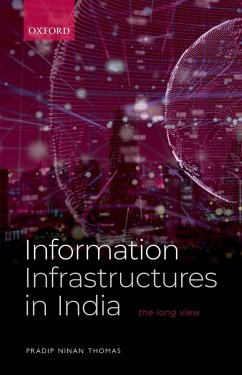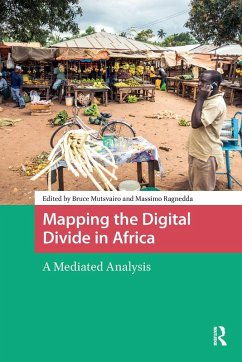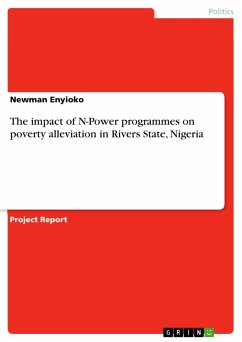
Information Infrastructures in India (eBook, PDF)
The Long View
Versandkostenfrei!
Sofort per Download lieferbar
34,95 €
inkl. MwSt.
Weitere Ausgaben:

PAYBACK Punkte
17 °P sammeln!
This book explores the past and present of information infrastructures in India. Grounded in infrastructure theory, it explores the historical continuities between information infrastructures in colonial and post-colonial India and the compulsions of information infrastructures in contemporary India. This volume highlights the roles played by private and public sector entities in shaping information infrastructures in India, the political economy of growth in this sector and the challenges faced by the State in regulating information platforms that are also information infrastructures. It incl...
This book explores the past and present of information infrastructures in India. Grounded in infrastructure theory, it explores the historical continuities between information infrastructures in colonial and post-colonial India and the compulsions of information infrastructures in contemporary India. This volume highlights the roles played by private and public sector entities in shaping information infrastructures in India, the political economy of growth in this sector and the challenges faced by the State in regulating information platforms that are also information infrastructures. It includes separate chapters on oceanic cable infrastructures that account for more than 90 per cent of data traffic between India and the rest of the world and the political economy of India's satellite program. Taking the 'long view', it argues that the provisionings of information infrastructures are by no means straight forward, that they are always expressions that are shaped by internal and external contestations, by ideological ends and business imperatives, the needs of consumers/citizens and the State, that there is a politics of infrastructure that needs to be accounted for, and that there always are winners and losers in large infrastructural projects such as Digital India.
Dieser Download kann aus rechtlichen Gründen nur mit Rechnungsadresse in A, B, BG, CY, CZ, D, DK, EW, E, FIN, F, GR, HR, H, IRL, I, LT, L, LR, M, NL, PL, P, R, S, SLO, SK ausgeliefert werden.













